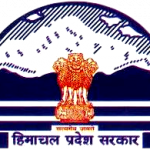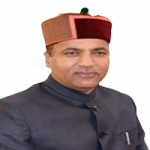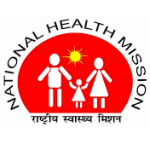National Mental Health Programme (NMHP)
It is estimated that 6-7 % of population suffers from mental disorders. The World Bank report (1993) revealed that the Disability Adjusted Life Year (DALY) loss due to neuropsychiatric disorder is much higher than diarrhea, malaria, worm infestations and tuberculosis if taken individually. Together these disorders account for 12% of the global burden of disease (GBD) and an analysis of trends indicates this will increase to 15% by 2020 (World Health Report, 2001). One in four families is likely to have at least one member with a behavioral or mental disorder (WHO 2001). These families not only provide physical and emotional support, but also bear the negative impact of stigma and discrimination. Most of them (>90%) remain un-treated. Poor awareness about symptoms of mental illness, myths & stigma related to it, lack of knowledge on the treatment availability & potential benefits of seeking treatment are important causes for the high treatment gap. The Government of India has launched the National Mental Health Programme (NMHP) in 1982, with the following objectives:
- To ensure the availability and accessibility of minimum mental healthcare for all in the foreseeable future, particularly to the most vulnerable and underprivileged sections of the population;
- To encourage the application of mental health knowledge in general healthcare and in social development; and
- To promote community participation in the mental health service development and to stimulate efforts towards self-help in the community.
- Early detection & treatment.
- Training: imparting short term training to general physicians for diagnosis and treatment of common mental illnesses with limited number of drugs under guidance of specialist. The Health workers are being trained in identifying mentally ill persons.
- IEC: Public awareness generation.
- Monitoring: the purpose is for simple Record Keeping.
District Mental Health Programme (DMHP) was started under the National Mental Health Programme (NMHP) to decentralize mental health services and to provide mental health service at the community level by integrating mental health with the general healthcare delivery system.
Status
- 30 medical officers were trained .
- 16 MO’S were trained in collaboration with Gunjan – NGO at RIHFW Cheb regarding de-addiction.
- 3 Days training for 46 staff nurses has been completed.
- Further training of medical officers and other paramedical staff will be started soon.
- Nine districts have applied for the establishment of drug de-addiction centers except for Bilaspur, Kinnaur and Lahaul & Spiti through the department of social justice and empowerment
- GOI provides the funds for establishing the centers.
- Bilaspur, Kinnaur will also be applying for the same under the national mental health program
- Centre of excellence has been approved by Government Of India to be established at Dr. RPGMC Tanda with a budget of about 32 Crore.
- There will be 100 bedded hospitals, PG courses in psychiatry, clinical psychology, psychiatric social work and psychiatric nursing will be started.
- Department of psychiatry in IGMC Shimla will be strengthened.
De-addiction facilities available in HP :
- IGMC Shimla.
- RPGMC Tanda.
- Himachal hospital of mental health and rehabilitation, Shimla.
- Zonal Hospital Dharamshala.
- Regional Hospital Kullu.
- Shri. Lal Bahadur Shastri Govt. Medical college, Mandi.
- Dr. Y.S. Parmar Medical College & Hospital, Nahan.
- Dr. Radhakrishnan Government Medical College & Hospital, Hamirpur.
- Pt. Jawahar Lal Nehru Government Medical College & Hospital, Chamba.
Services Rendered under DMHP
- Yuva Pramarsh Kendra’s have been established in all the district hospital of the state under Rashtriya Kishore Swasthya Karyakarm (RKSK)
- These are being managed by clinical psychologists and medical social workers who have been trained at Nimhans, Bangalore.
- Counseling services for de-addiction are also being provided in these centers.



